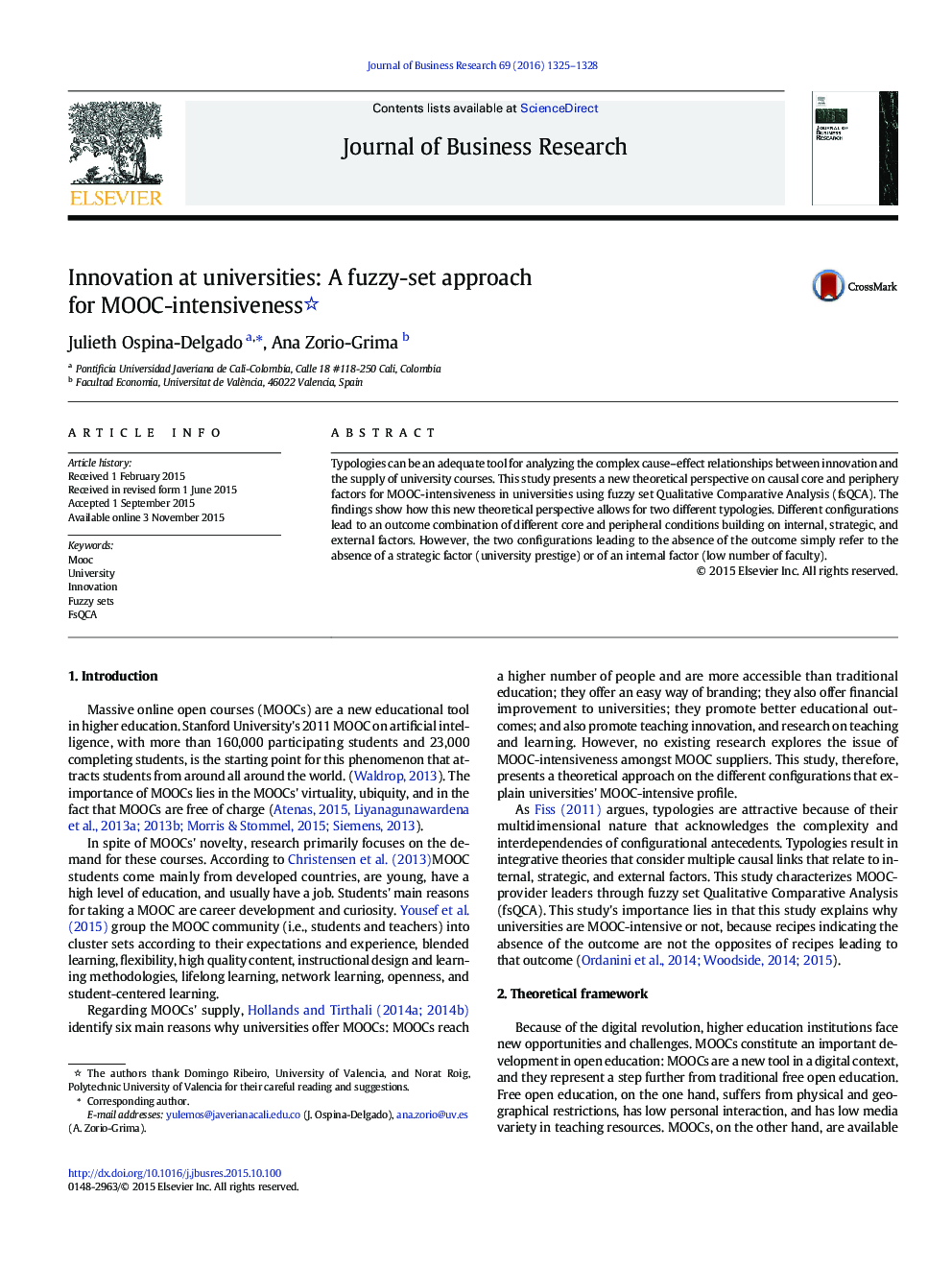| Article ID | Journal | Published Year | Pages | File Type |
|---|---|---|---|---|
| 1016864 | Journal of Business Research | 2016 | 4 Pages |
Typologies can be an adequate tool for analyzing the complex cause–effect relationships between innovation and the supply of university courses. This study presents a new theoretical perspective on causal core and periphery factors for MOOC-intensiveness in universities using fuzzy set Qualitative Comparative Analysis (fsQCA). The findings show how this new theoretical perspective allows for two different typologies. Different configurations lead to an outcome combination of different core and peripheral conditions building on internal, strategic, and external factors. However, the two configurations leading to the absence of the outcome simply refer to the absence of a strategic factor (university prestige) or of an internal factor (low number of faculty).
